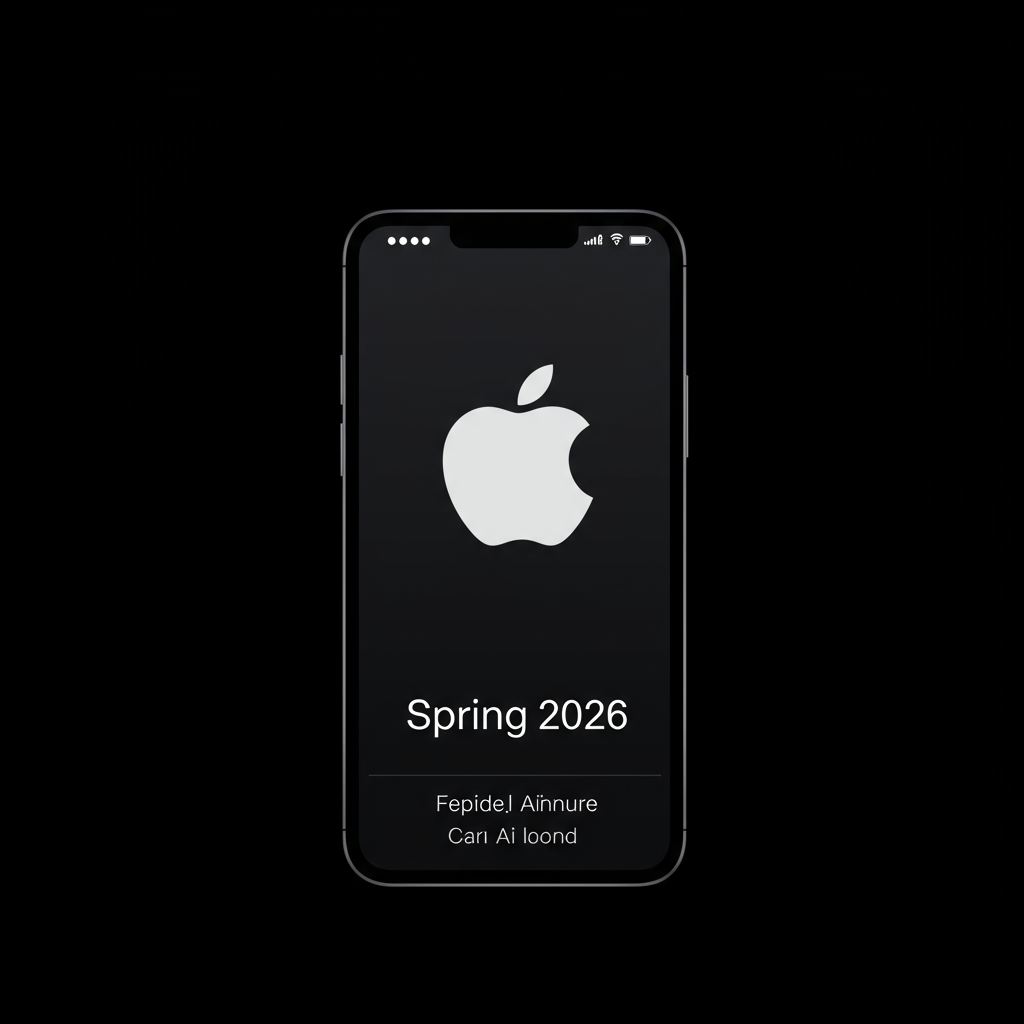Apple’s ambitious plans for a significantly upgraded, artificial intelligence (AI)-powered version of its Siri voice assistant have reportedly faced multiple delays, with the company now internally targeting a Spring 2026 release. This new timeline marks a significant pushback from the originally planned debut.
The revamped Siri, intended to leverage cutting-edge AI capabilities, was initially anticipated to launch in Fall 2024. However, this target was subsequently shifted several times – first to Spring 2025 (specifically aimed for iOS 18.4 and later May 2025 with iOS 18.5), before being postponed indefinitely in March with a vague promise of sometime in the “coming year.” The latest reporting indicates the company has now settled on Spring 2026 as its internal goal, likely arriving as part of the iOS 26.4 software update, which typically releases around March.
Reasons Behind the Extended Delay
The prolonged development timeline is primarily attributed to technical challenges and internal complexities. Reports suggest that integrating advanced large language models (LLMs) to enable more sophisticated responses has proven difficult. The fundamental architecture of the existing Siri system, which splits tasks between an older framework and a newer AI one, has reportedly led to bugs and instability during attempts to merge or integrate the two.
Beyond technical hurdles, sources indicate the project required a substantial rebuilding of Siri. There have also been shifts in management responsibilities within Apple concerning Siri’s engineering. Software engineering chief Craig Federighi, now overseeing the project alongside Mike Rockwell after AI head John Giannandrea reportedly reduced direct involvement, acknowledged the need for patience. Speaking at Apple’s Worldwide Developers Conference (WWDC), Federighi stated the work “needed more time to reach our high quality bar.”
Apple CEO Tim Cook also previously commented on the delays during a quarterly earnings call, noting the company needed “more time” to upgrade Siri’s AI capabilities. When pressed for specific reasons, he simply stated it was “just taking a bit longer than we thought.”
Adding to the internal dynamics, reports point to friction between engineering and marketing teams, with disagreements over missed deadlines and feature promotions contributing to the challenges.
What to Expect from the Revamped Siri
Despite the delays, the goals for the upgraded Siri remain ambitious. The core objective is to modernize the voice assistant, first introduced in 2011, to better compete with contemporary AI tools and chatbots from rivals.
Key expected enhancements include:
Improved Personalization: The new Siri is designed to leverage user data and understand on-screen context to provide more relevant and tailored responses. This could enable Siri to access information across apps, such as referencing emails for flight details or analyzing content currently displayed on the screen.
Enhanced App Control (App Intents): A system called App Intents is expected to significantly expand Siri’s ability to control apps and execute specific actions within them across Apple devices. This aims to allow users to complete complex workflows using voice commands, potentially automating tasks that previously required manual navigation within multiple applications. Company demonstrations have reportedly shown advanced capabilities like embedding photos into documents or cross-referencing information from emails and calendars based on contextual voice prompts.
- Greater Responsiveness: The overhaul aims for Siri to be more intelligent and capable of handling nuanced requests, moving beyond basic commands to become a more integrated AI companion.
- www.pymnts.com
- analyticsindiamag.com
- thetechportal.com
- www.fonearena.com
- www.pymnts.com
Broader AI Context
The Siri upgrade is part of Apple’s larger push into artificial intelligence, highlighted by recent announcements around “Apple Intelligence” at WWDC. While the Siri overhaul itself is delayed, other AI features like integrated live translation are still planned for release with iOS 26 later this year on compatible devices.
Apple’s pace in integrating cutting-edge generative AI and LLMs has been noted as more restrained compared to rivals like Amazon, Google, and Microsoft, who have been more aggressive and experimental in their AI deployments. This cautious approach appears to be a factor in the extended development timeline for Siri. Internal discussions reportedly continue within Apple regarding whether to develop AI capabilities primarily in-house or rely more heavily on partners like OpenAI, and the company is also said to be exploring potential acquisitions of smaller AI startups.
The delay in the core Siri AI features has also reportedly impacted related hardware projects, including plans for a smart home hub and future smart glasses that would heavily rely on advanced AI processing and contextual understanding.
While the Spring 2026 target is the current internal goal, subject to change, there remains a possibility that Apple could preview some of the new Siri capabilities during the next iPhone launch event in the fall before the full rollout.




